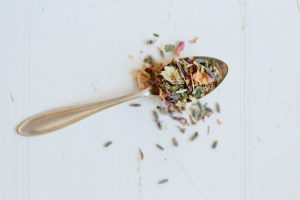The Naturopathic Co.

You're using an outdated browser. Please upgrade your browser to improve your experience.
Nutrition plays a crucial role in treating GI symptoms and microbiome dysbiosis, and with personalised recommendations, a patient can experience improved gut symptoms as well as manage and prevent disease.
The majority of health issues I treat are linked to poor gut health in some way.
The gut influences so many health outcomes. To give you an idea, the following conditions are all influenced by poor gut health:
◦Digestion, IBS, Colitis, Crohn’s
◦Low immunity
◦Hormones
◦Sleep (melatonin)
◦Mental health; mood, depression, anxiety, brain fog (gut brain connection)
◦Skin; acne, psoriasis, eczema
◦All autoimmune conditions
◦Recurrent infections (UTIs, thrush, ear infections, chest infections, coughs etc).
◦Weight/metabolism
◦Endometriosis
◦Autism
◦And more…
One of the main culprits negatively altering the gut microbiota is refined starches/sugars.
High intake of sugar can stimulate the growth of pathogenic bacteria to the detriment of beneficial bacteria, leading to potential alterations of the intestinal barrier.
The impact of high-sugar diet on the gut microbiota lowers microbial diversity and abundance, and increases gut permeability boosting metabolic endotoxemia and systemic inflammation through modulation of the gut microbiota.
A traditional Mediterranean diet is the best approach, but if you already have gut issues, then it’s likely that you’ll need a personalised treatment plan first in order to treat the gut dysbiosis. Once your symptoms have been addressed through treatment, then you can continue on a Mediterranean diet beyond that.
The traditional Mediterranean diet has been linked to the best health outcomes. This type of diet encourages fresh, wholefoods, lots of colour, with an emphasis on fish and plant foods.
Reduce animal proteins – meat, and increase plant proteins – especially beans, lentils. Plant-based foods and polyphenols are beneficial compounds in plant foods which are linked to preventing cardiovascular disease, diabetes, obesity, and other health issues. Plant polyphenols also regulate microbial activities in the gut.
Consume fish – an easily digestible source of protein and omega-3 fatty acids from cold water oily fish reduce gut inflammation (salmon is ideal).
The traditional Mediterranean of diet is naturally rich in prebiotics and probiotics.
Prebiotics are non-digestible food that have a beneficial effect on GI health and symptoms, stimulating the growth and activity of bacteria, ie bacteria feed off prebiotics. Endive, radicchio, artichokes, garlic, onions, leeks, asparagus, oats, apples, cacao, flaxseeds, seaweed, legumes.
Probiotics are living microorganisms which can influence a patient’s gut microbial community to improve gut health, nutrient absorption, reduce allergic and inflammatory responses and improve immune function.
For your naturopathic support, and to digestive issues from the underlying cause, make time to see our South Yarra naturopath, Brisbane naturopath, Sydney Naturopath, Perth Naturopath, Hobart naturopath, or Adelaide Naturopath, or find out if we can help you by booking a FREE 20 minute Discovery Call online via zoom
We offer services in major cities across Australia
Yvette is a qualified Melbourne-based Naturopath and Nutritionist, MINDD Practitioner, member of the Naturopaths and Herbalists Association of Australia, and Complementary Medicine Association. Yvette specialises in the treatment of digestive complaints, skin issues, mood disorders, hormonal concerns, fatigue, and also has a key interest in children’s digestive and neurological conditions. Click HERE to book your free discovery call Australia-wide.
Comments are closed.